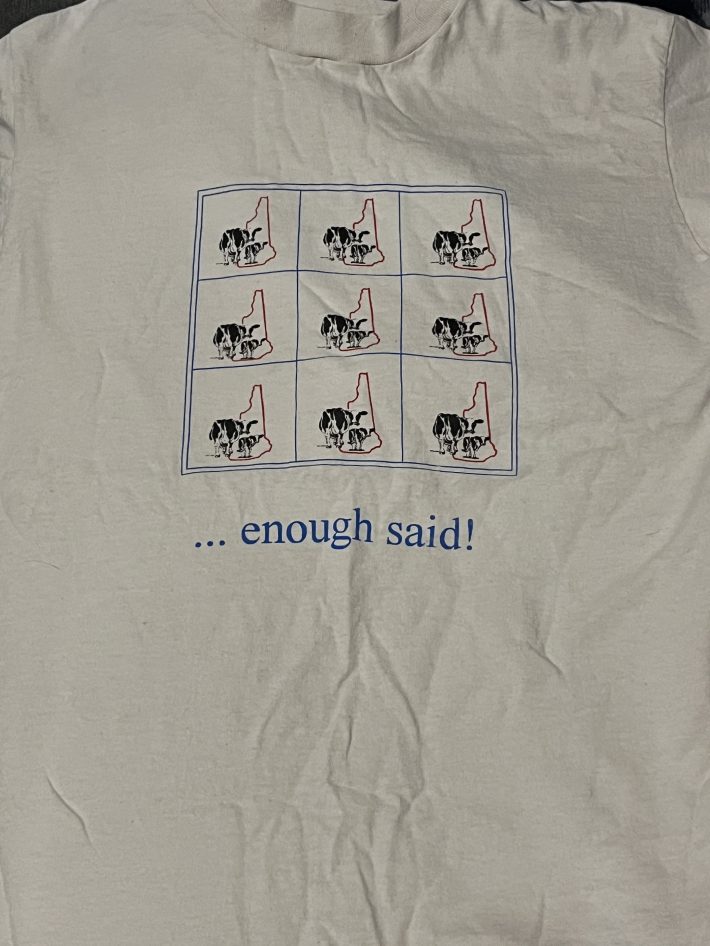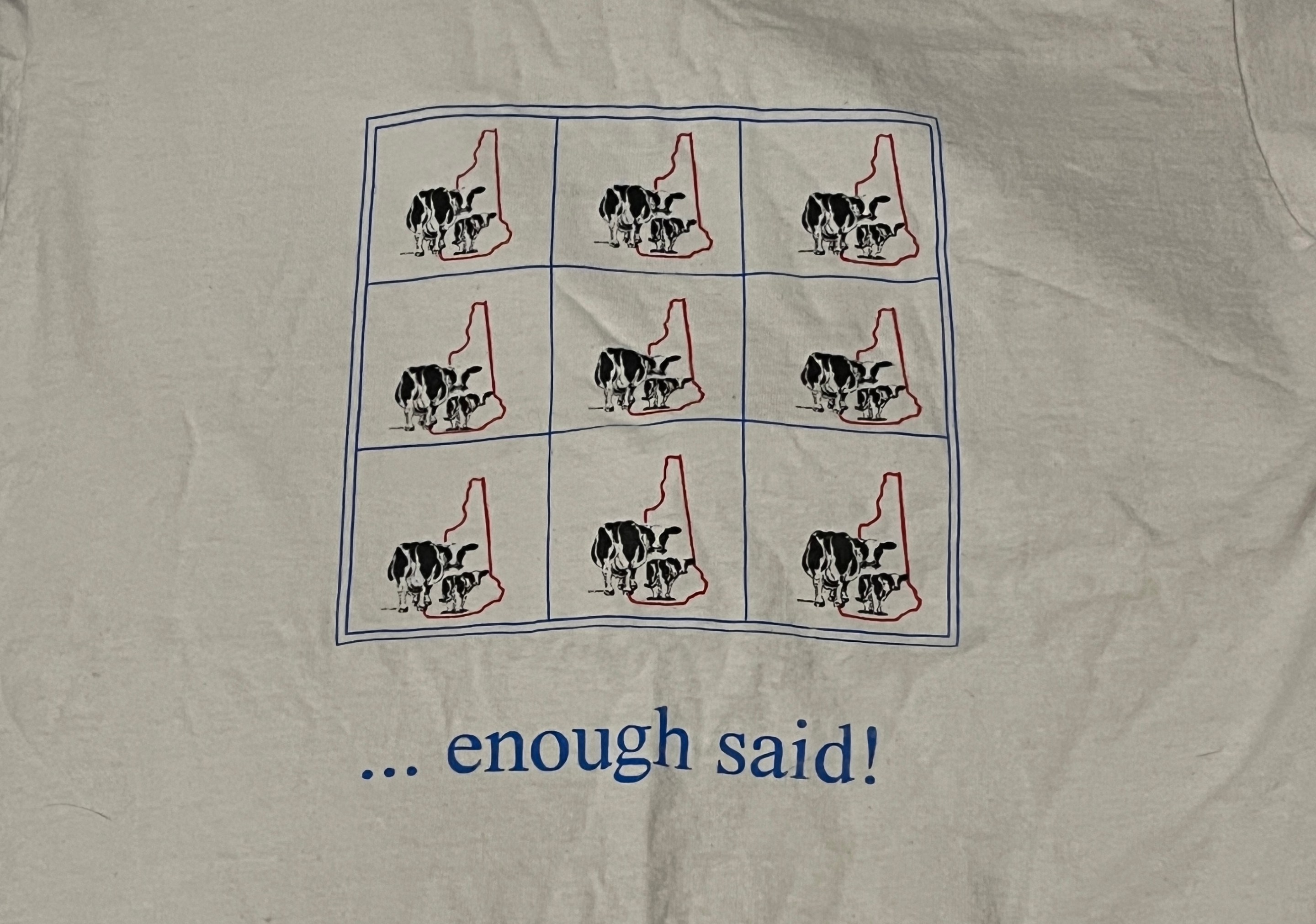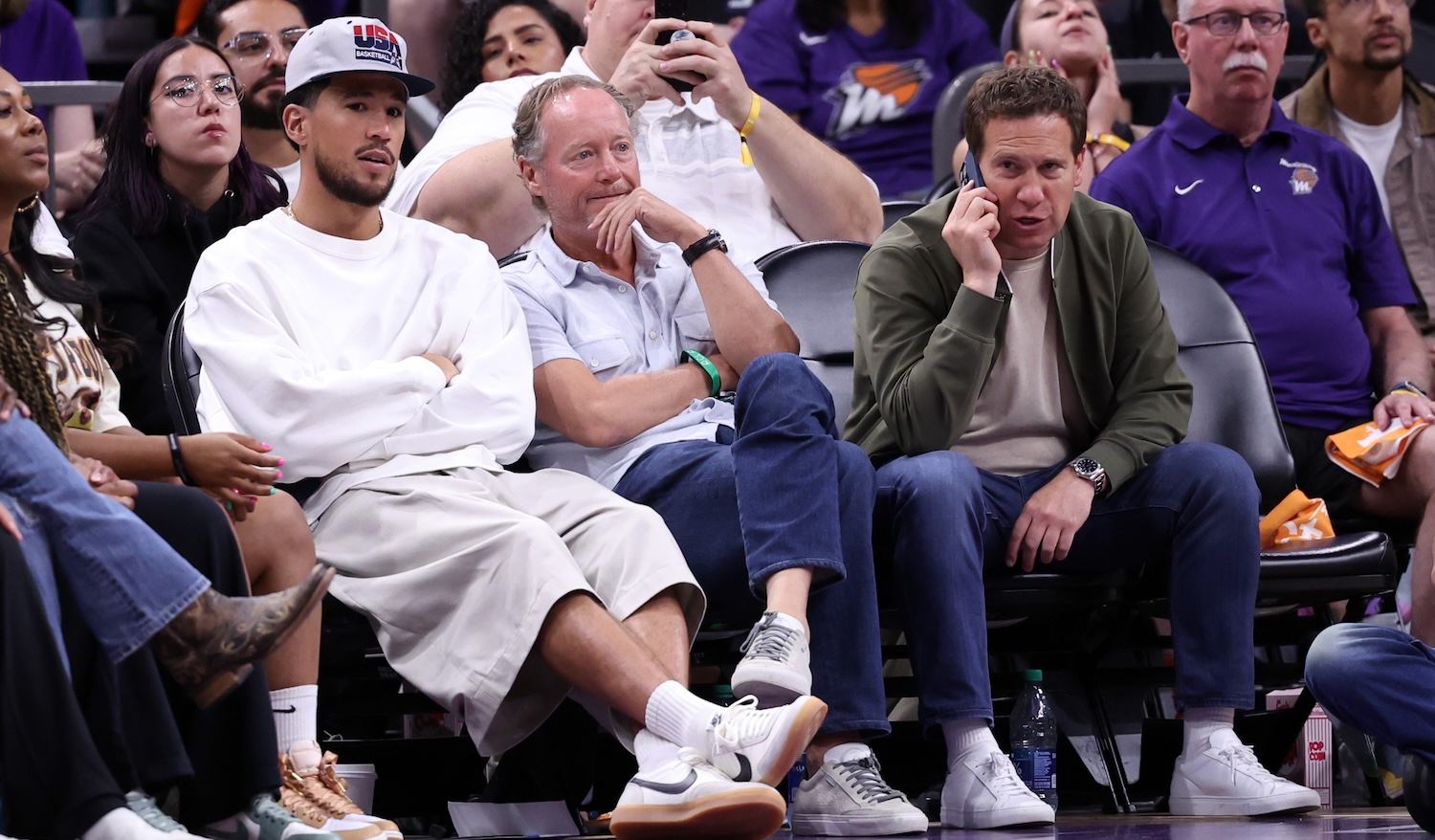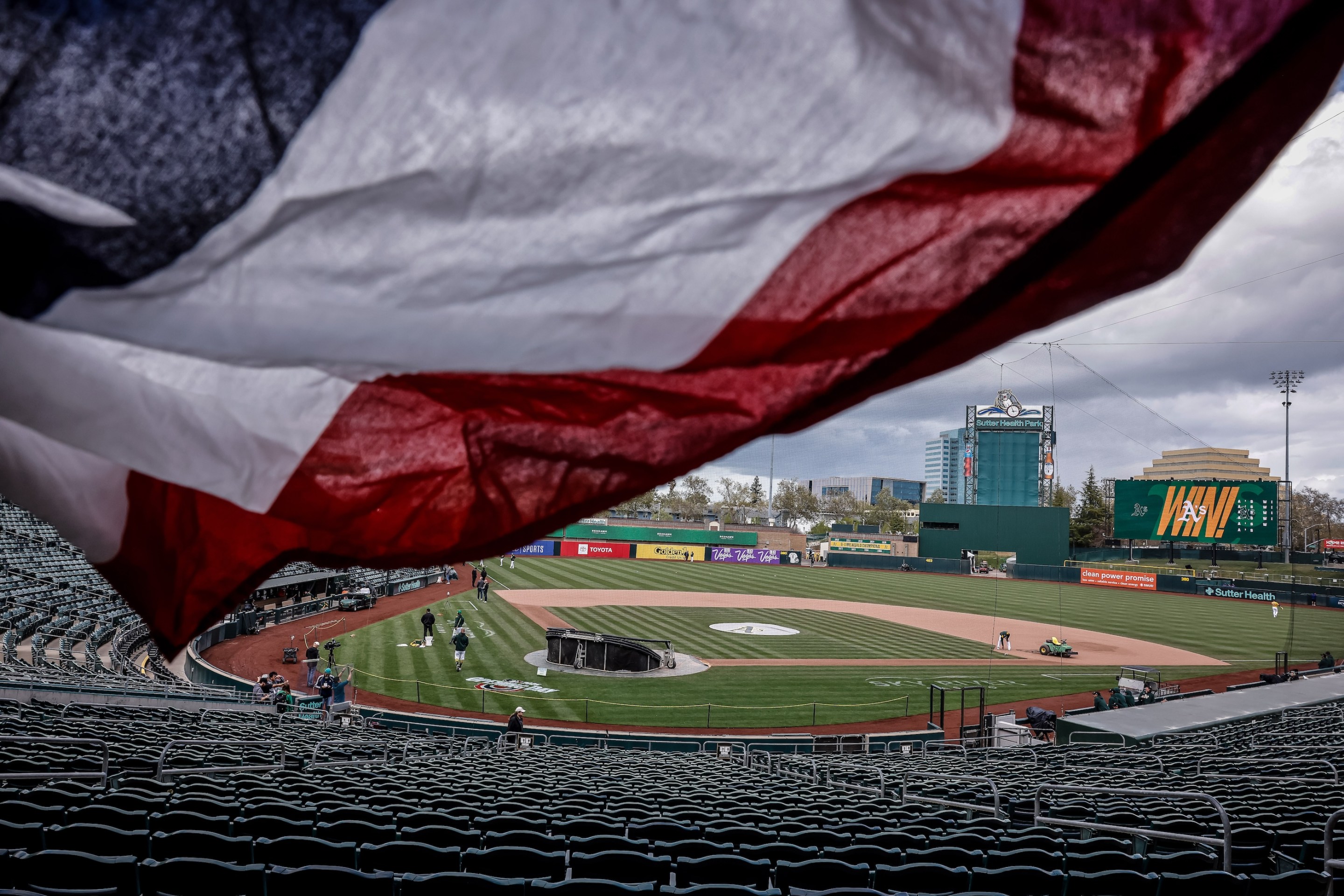Before you is a T-shirt, its front displaying a nine-box grid. Remembering Edwin Jackson or Mike Avilés will be of no help here—each box is already filled. The same thing is in each box, actually: two cows, one larger than the other, standing in front of the state of New Hampshire. Below the grid, two enigmatic words: "... enough said!"
Enough has not been said. When I saw this shirt in a late-night eBay browsing session, I thought it was neat because it involved the state of New Hampshire. "This vintage t-shirt features a unique animal print pattern with a graphic of cows," the description read. It would be nice to have a piece of clothing that functioned as an oblique reminder of where I grew up. Then I kept staring at it, the way one might linger in front of a particularly striking painting at the museum, and the design became increasingly perplexing. Was it a rebus? A farmer's inside joke? Nine New Hampshires, 18 cows ... enough said. Though I couldn't understand the shirt, I also couldn't ignore this opportunity. According to email records, I bought it on Aug. 10 at 2:20 a.m. local time. I was completely sober.
Historians believe cattle domestication to have first occurred in—just kidding, I'm not doing a New Yorker Eurostep here. The shirt arrived six days after I purchased it. Now that it was in my possession, I could better search for its meaning. First I messaged the person who sold me the shirt, asking if they knew what it meant or remembered where they found it. The seller said it was a yard-sale find and suggested it might have come from the eastern part of New Hampshire, possibly Gorham, since there are dairy farms around there. That was all the information they could offer. I thanked them for their response and left positive feedback on their eBay page. They replied, "Thanks I just loove funky shirts so I totally understand!"
The shirt's Fruit of the Loom tag and stitching suggested it was made in the early 1990s, but there wasn't any other identifying information on it. A reverse image search didn't bring up anything useful. The next step was to solicit opinions from my coworkers. I shared a photo of the shirt; they were confused then subsequently annoyed with me. No one knew what the cow grid meant, but they were now invested in finding an explanation. Lauren compared it to the infamous Far Side "Cow tools" cartoon. Barry did his own snooping and suggested an answer: Could it be a joke about how there were more cows than people in New Hampshire? It's "Cow Hampshire," after all.
As a person intimately familiar with the Granite State, I thought this was bullshit. No offense to Barry. Actually, some offense to Barry. While I don't deny that "Cow Hampshire" exists as a derisive nickname for the state—the college I attended had a dairy research farm—everybody (I'm using this word generously) knows that Vermont is supposedly the state with more cows than people. New Hampshire's population as of 2020 was 1,377,529, according to the Bureau of the Census. Its 69-ing neighbor state had a 2020 population of 643,077, less than half.
Nine American states supposedly have more cattle than people, and neither New Hampshire nor Vermont are among them. Data provided by the website Beef2Live shows that Vermont's cattle-per-person ratio is 0.41, 17th in the United States, while New Hampshire's is a mere 0.02. And if you are skeptical of the integrity of Beef2Live, consult Table 11 of the U.S. Department of Agriculture's 2017 Census for similar numbers. (Data for the 2022 Census won't be released until 2024.) There were 35,323 cattle and calves reported in New Hampshire that year, compared to 254,796 for Vermont. While neither state's cows outnumber its human citizens, between the two of them, there's one clear answer here. To the Green Mountain State, I say: You're the Cow State. New Hampshire is for humans.
While this data did allow me to make fun of Vermont, it didn't bring me closer to achieving my initial goal. But then, a clue—when I had posted the shirt on Instagram to solicit additional input, my friend Bob Sorokanich had messaged me: "I think this is a cow flop joke."
This was the most promising lead yet. A cow flop (which goes by many names, including "cow pie bingo") is a contest, usually at fairs or fundraisers and not exclusive to New Hampshire, in which an area of grass is divided up into a grid. People buy a ticket to claim a square. A cow is then released to roam the grid, and when it poops, the square containing the cow dung wins money. A Portsmouth Herald article from 2009 describes one such contest:
Si Robertson of Hopkinton let Frylock the cow graze and then steered her into an area of grass marked by flags and white lines. Within a little over a minute, Frylock had made her mark on the grass, leaving Fred Emanuel of Emanuel Engineering to graph out the spot where the "flop" had landed. Essentially, those buying $5 tickets bought a spot or more in the grassy grid and hoped the cow would choose to fertilize the area they bought into.
[...]
Emanuel said he used to be involved with the cow flop in a measuring capacity and said the results vary considerably. One year, he said, the cow involved took almost two hours to create the prize winner, leading to a second cow being used in the future as a backup.
Would you like to watch a cow flop with your own eyes? I suggest "Cow Flop Contest Rowe Mass. 7/10/10," uploaded on YouTube. It happens pretty quickly:
This felt like the most convincing answer so far. Through this lens, the grid of cows and "... enough said!" could be reference to local fecal-centered contests in a way that was cheeky yet wholesome, a notch or two above the level of Calvin pissing on something, and closer to the attitude of Maxine, the grumpy old lady on those Hallmark cards. The shirt was understated in order to steer clear of juvenile humor, but still wink at those in the know. Even with this theory, though, the message still wasn't entirely clear: Was this shirt made by and for in-staters, or as a shot across the bow, to say that New Hampshire was only fit to be pooped on by cows?
This is where my search stalled. I emailed the New Hampshire Historical Society, insisting, maybe too stridently, that this was a sincere inquiry. They have not responded. If you think you have a genuine answer, get in touch. If you have a joke answer, get in touch here. Enough said.







